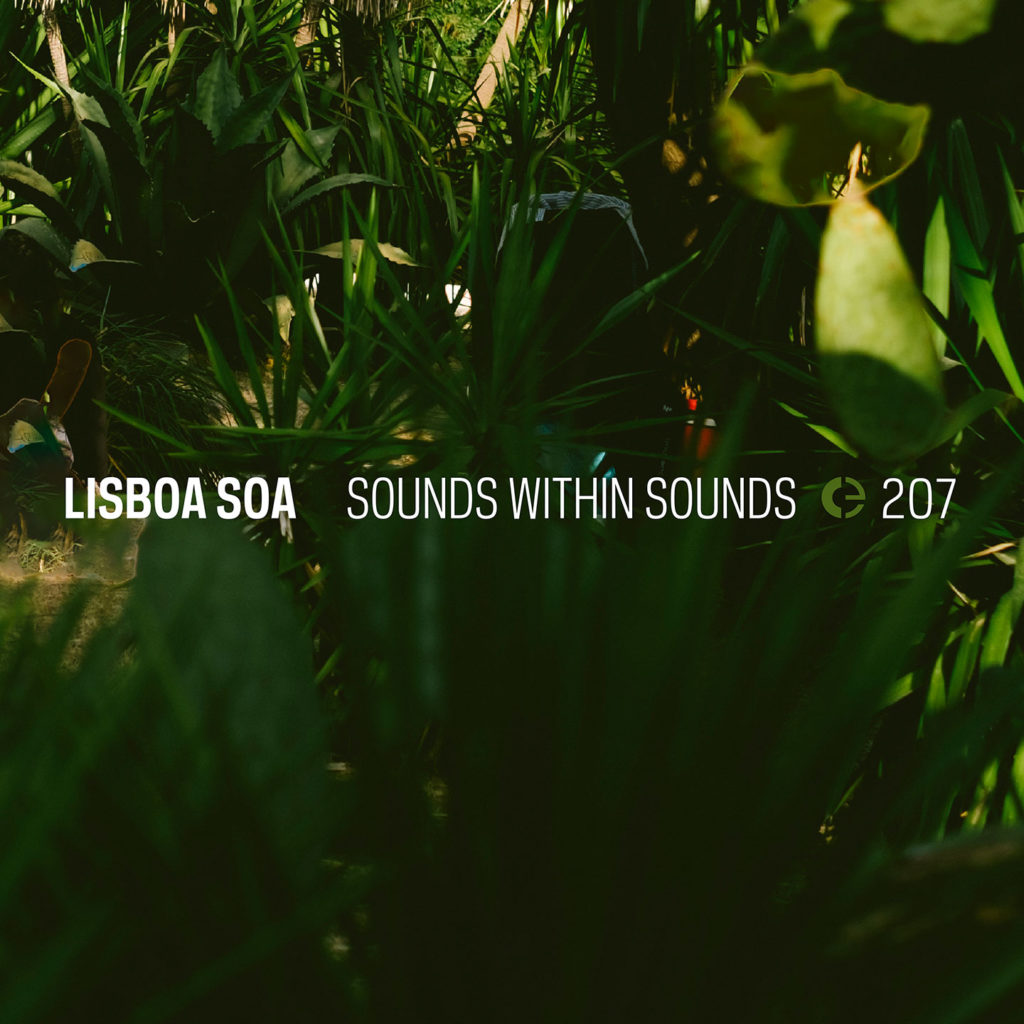
Shifting attention to hearing, and creating the spatial and temporal conditions aimed at encouraging this practice, placing a certain amount of care in defining an adequate social context, supporting ecological sensitivity, giving life to significant sound experiences, and in iconic spaces, designing routes that guide visitors through them, while at the same time encouraging reflection on the public’s involvement with the environment and the city. This is what Lisboa Soa, a festival of sound art, ecology, and auditory culture, has been trying to achieve since 2016 when the first edition was held at Tapada das Necessidades, a huge ten-hectare garden located between Alcântara and Estrela. In 2021, during the pandemic and the resulting restrictions, the festival commissioned four compositions from four Portuguese artists who dug into the sound archive of previous editions to create new audio scores. From these compositions was born Lisboa Soa, Sounds Within Sounds, a work on memory with an ear turned to the future. We start listening with ‘Efflux’ by João Castro Pinto, a composition lasting almost ten minutes that initially flows with delicate harmonies testing our perception before evolving into more full-bodied drones. ‘Do que Ressoa’ by Sara Pinheiro starts with various buzzing sounds, almost like insects with metallic resonances – added to them are the recordings of arrivals and departures from before and after the concerts and installations. ‘No Earlids’ from Mestre André offers an interesting journey through various material accumulated over the years, not only recordings but also ‘behind the scenes’ moments, edited and packaged in adventurous, multifaceted, and vivid overlays. ‘Splicing_archives’ by Ana Guedes concludes the selection and is the most intimate and mysterious score of this collection, even though it too makes significant use of the festival archives, filtering and processing for a total of 25 minutes making it the longest offering on the album. Lisboa Soa has now fully resumed its activities and the latest edition was dedicated to the theme Multipli.Cities, once again underlining the importance of welcoming differences and promoting coexistence between communities within urban spaces. These values are intrinsically linked to ecological processes while challenging other systemic inequalities that we all face. Aurelio Cianciotta
via Neural
